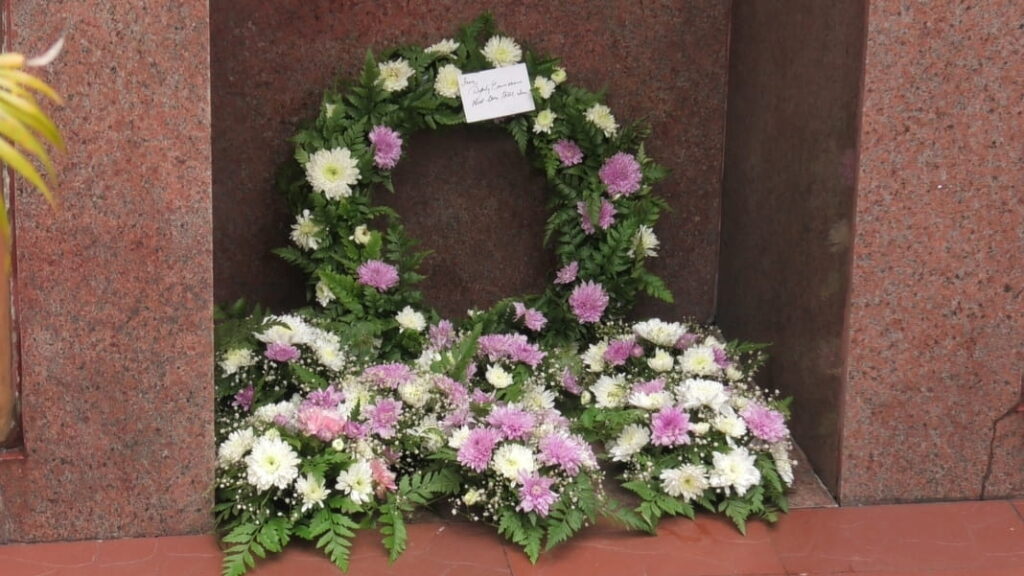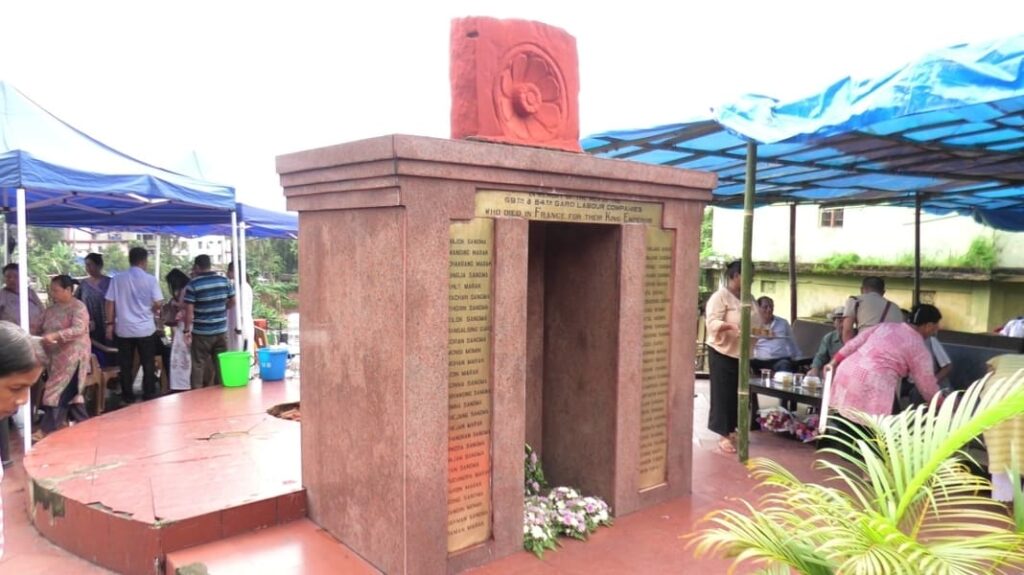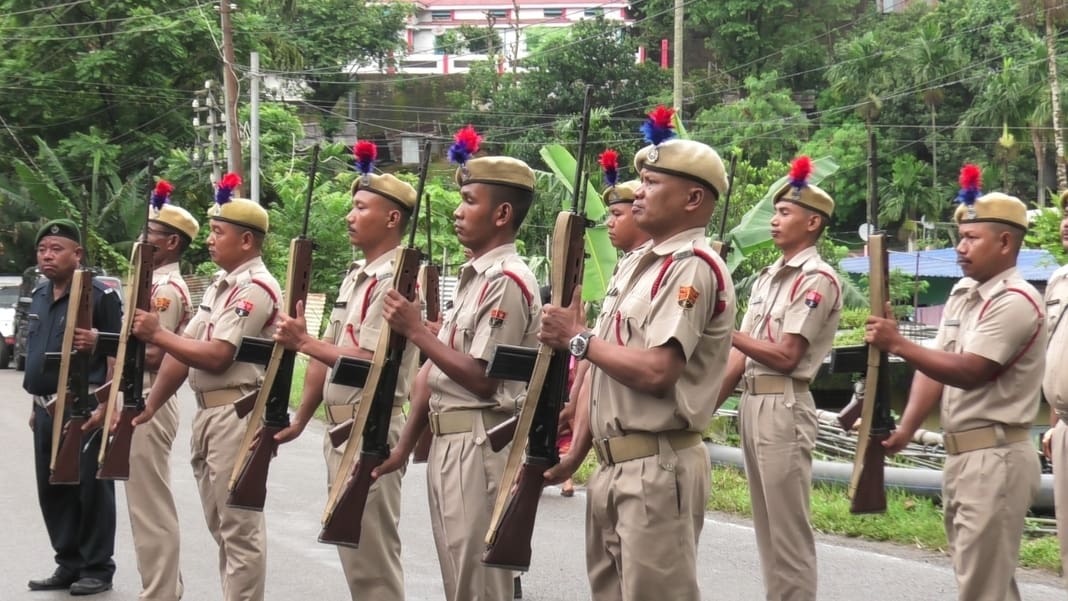Tura, July 16: The 106th Garo Labour Corps Day was solemnly observed on Tuesday at the Cenotaph in Lower Babupara, Tura, in remembrance of the several hundred Garos who perished during the First World War in France and the return of the few survivors on July 16, 1918.

In honor, the event featured guests and dignitaries laying floral wreaths at the Cenotaph, accompanied by prayers and a Salami in tribute to the departed souls. The salutation was performed by the District Police and the 2nd MLP Battalion, Goeragre.
Advertisement
West Garo Hills Deputy Commissioner Jagdish Chelani declared July 16th a local holiday, closing all government offices, district courts, and educational institutions in the district to mark the occasion.
The program included a patriotic song performance by students from Harding Theological College and a prayer by Aldrin B. Marak, Accountant at the Tura Municipal Board. A two-minute silence was also observed in memory of the fallen.

Among the attendees were J. D. Sangma, Chairman of Tura Municipal Board; Dolrich B. G. Momin, ADC of West Garo Hills; Skylance G. Momin, IPS, Retd. IGP, and President of Nokma Council; and Dr. Imna Nungshi, Principal of Harding Theological College.
The event was organized by the Tura Municipal Board.

History of Garo Labour Corps:
During the World War–I around 500 Garo men were recruited by the British government in India and sent to the frontlines of the war in France. Their job was to bring in supplies, construct roads and transport much needed supplies to the allied forces battling the Germans at the frontlines.
Although 1000 garo men were recruited only 500 were declared fit, of which 456 reached France, at the beginning of the cold and bitter winter of the same year.
During their stay in France, the recruits won acclaim of the allied commanders for their hard and dedicated work.

When the war ended on May 25 of 1918, they were sent to Marseilles port in France for repatriation to India.
They landed in Tura on July 16, 1918 but sadly, of the 456 who reached France, only 120 were to return home alive.
It is to commemorate their return and to remember those who could not make it back that this special programme has been organized every year, since 1918.
Read: Floods devastate wildlife in Kaziranga National Park
WATCH:
Find latest news from every corner of Northeast India at hubnetwork.in, your online source for breaking news, video coverage.
Also, Follow us on-
Twitter-twitter.com/nemediahub
Youtube channel- www.youtube.com/@NortheastMediaHub2020
Instagram- www.instagram.com/ne_media_hub





